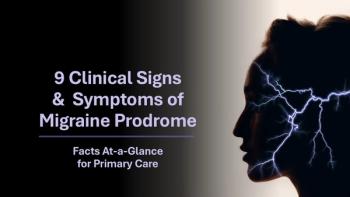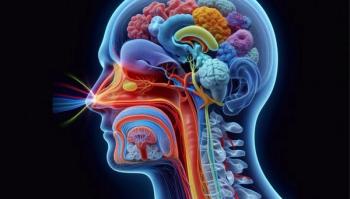
Neurology
Latest News
Latest Videos
CME Content
More News

The premonitory constellation of neurologic, autonomic, and behavioral symptoms is increasingly understood as the earliest manifestation of migraine pathophysiology.

Linus Health will demonstrate advances in remote assessment platforms and digital biomarkers of cognitive health that can bring precision medicine to primary care.

The FDA has granted fast track designation to BMS-986446, an anti–microtubule binding region tau antibody in phase 2 trials for early Alzheimer disease.

Vertanical's VER-01 shows promise in reducing chronic low back pain, outperforming opioids and maintaining relief for over a year.

The European Commission granted marketing authorization for the Lilly mAb based on data from the phase 3 TRAILBLAZER-ALZ 2 and 6 clinical trials.

A study of more than 559 000 adults and 2.4 million genetic samples found that alcohol consumption of any amount increases dementia risk, challenging prior evidence of protective effects from light drinking.

The FDA has initiated approval of leucovorin calcium tablets for children with cerebral folate deficiency, which can manifest with autistic features. What is it?

FDA grants Fast Track designation to etalanetug, a promising tau-targeting antibody for Alzheimer disease that could expand treatment options for the neurodegenerative disease.

Your daily dose of the clinical news you may have missed.

Among 180+ active AD trials, 15 biological targets span traditional Aβ and tau proteins as well as new pathways in brain metabolism, neuroinflammation, and synaptic health.

The investigational ShiraTronics Migraine Therapy System delivered an average of 9.6 migraine-free days per month, reduced rescue medication use, and improved QOL.

Your daily dose of the clinical news you may have missed.

Once-daily blarcamesine was associated with minimal cognitive decline at 48 weeks, with changes comparable to those observed in prodromal aging.

Family physician Teresa Lovins, MD, highlights key community mental health resources primary care clinicians should know to support patients in crisis.

New findings presented at World Sleep 2025 reveal oveporexton's promise as a first-in-class treatment for narcolepsy type 1, significantly improving symptoms and quality of life.

Family physician Teresa Lovins, MD, explains how primary care clinicians can determine when to manage depression and when urgent referral is needed.

The FDA has cleared Eisai and Biogen’s Leqembi Iqlik, the first at-home subcutaneous autoinjector for maintenance therapy in patients with early Alzheimer disease.

Your daily dose of the clinical news you may have missed.

The protective effect of the diet was strongest in the highest-risk group, those homozygous for the APOE4 gene variant, suggesting that diet may help offset genetic risk.

Vaginal estradiol is often prescribed as first-line therapy for genitourinary syndrome of menopause, making the findings supportive of current clinical practice.

Risk of dementia was more than 60% lower among adults aged 60 to 69 years with hearing loss who used hearing aids in the first study to highlight early intervention.

Your daily dose of the clinical news you may have missed.

Insulin delivered via nasal spray in this first-in-human PET imaging study was observed in 11 key brain areas relevant to cognitive decline, validating a new research avenue.

Your daily dose of the clinical news you may have missed.

The 2 new plasma assays to enhance Alzheimer’s disease research will support disease staging, predicting disease progression, and monitoring treatment outcome.


































































































































